Toggle navigation
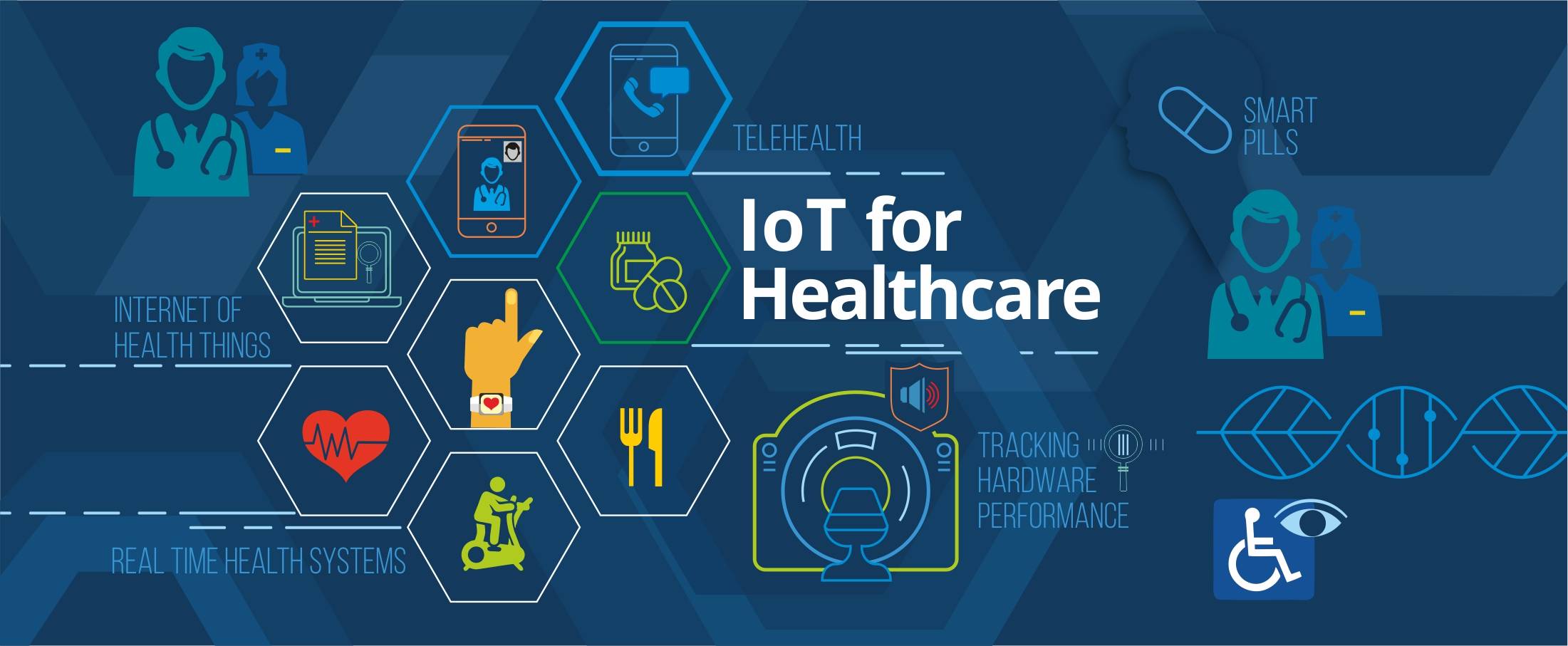
The healthcare industry is evolving at an unprecedented pace. A thriving technology, Internet of Things (IoT), is spawning a plethora of opportunities in the healthcare space.
As per the latest reports, IoT in healthcare is estimated to grow from $41.22 billion in 2017 to $265 billion in 2024.
Medical sensors, smart devices and wearables are facilitating the collection of valuable data that offers eye-opening insights on symptoms and trends, facilitates remote care and gives patients better control over their health.
Advances in IoT have allowed healthcare players to operate with greater efficacy and patients to obtain better treatment.
Here are 5 exciting IoT applications in healthcare that are revolutionizing this space:
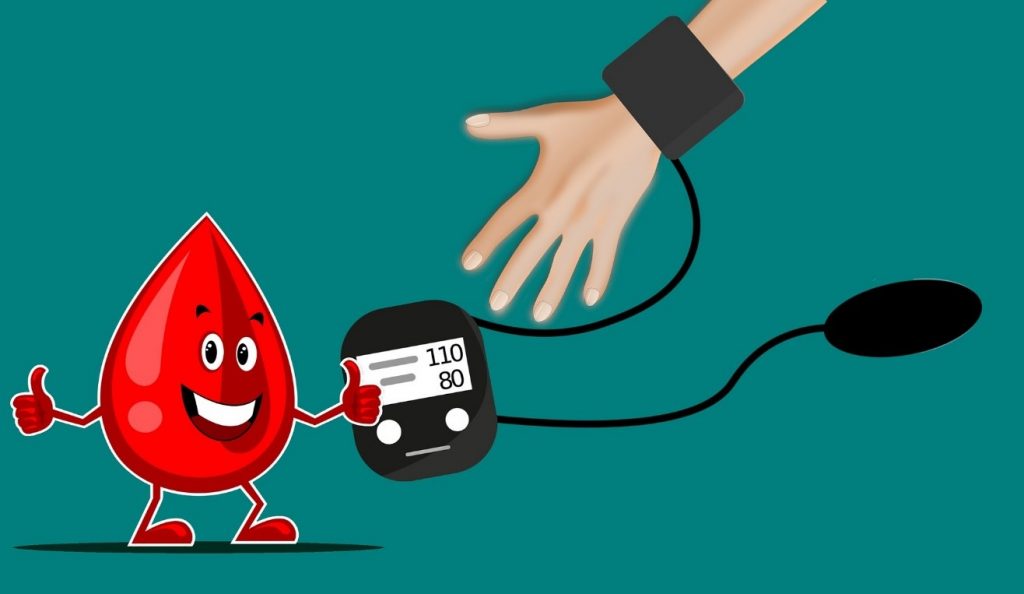
One of the salient IoT applications in healthcare is remote monitoring of patients.
Of late, there has been a trend towards treating the patient in a private, remote environment instead of in hospitals or emergency care environments. Such an approach reduces the workload on healthcare workers who, in many cases, cannot cope up with the rising number of patients.
Monitoring in a remote environment not only minimizes the cost of treatment by reducing the need for visitation but also improves the overall quality of treatment. It is particularly beneficial for patients who have limited mobility or live in far-off places.
To a certain extent, remote treatment of patients also helps contain the rise of chronic illnesses, especially among the ageing population.
Internet of Things (IoT) offers a wide range of wearables and biosensors that facilitate remote monitoring of patients. Remote monitoring enables healthcare specialists to harness the data gathered through wearables and other devices and study trends, patterns and correlations offering precious insights on a patient’s health.
Here are some devices that facilitate remote monitoring:
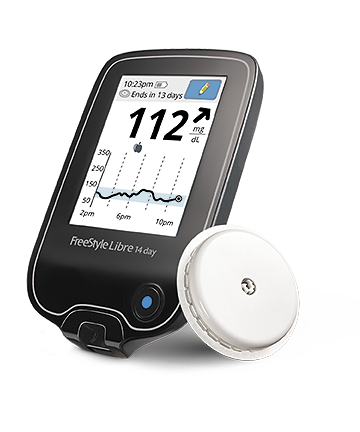
Image Courtesy: freestylelibre.us
Continuous Glucose Monitor or CGM is a device that helps diabetic patients monitor their blood glucose levels continuously after it has been implanted in a patient’s arm. IoT-enabled CGMs from Eversense and Freestyle Libra send data on blood glucose levels to an app on an Android or iOS device, allowing the patient to track his statistics and detect patterns in real-time. Freestyle Libra also allows the remote monitoring of diabetics by caregivers such as relatives of elderly people or parents of diabetics.
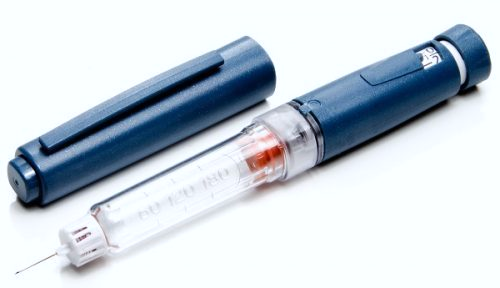
Image Courtesy: medgadget.com
Smart Insulin pens from Gocap and InPen and are IoT-enabled devices that automatically record the time, amount and type of insulin injected in a dose. This data gets automatically collected and sent to a paired smartphone app through Bluetooth. By examining their long-term data, diabetes patients can keep track of their insulin dose and analyze how their insulin dosage affect their sugar levels.
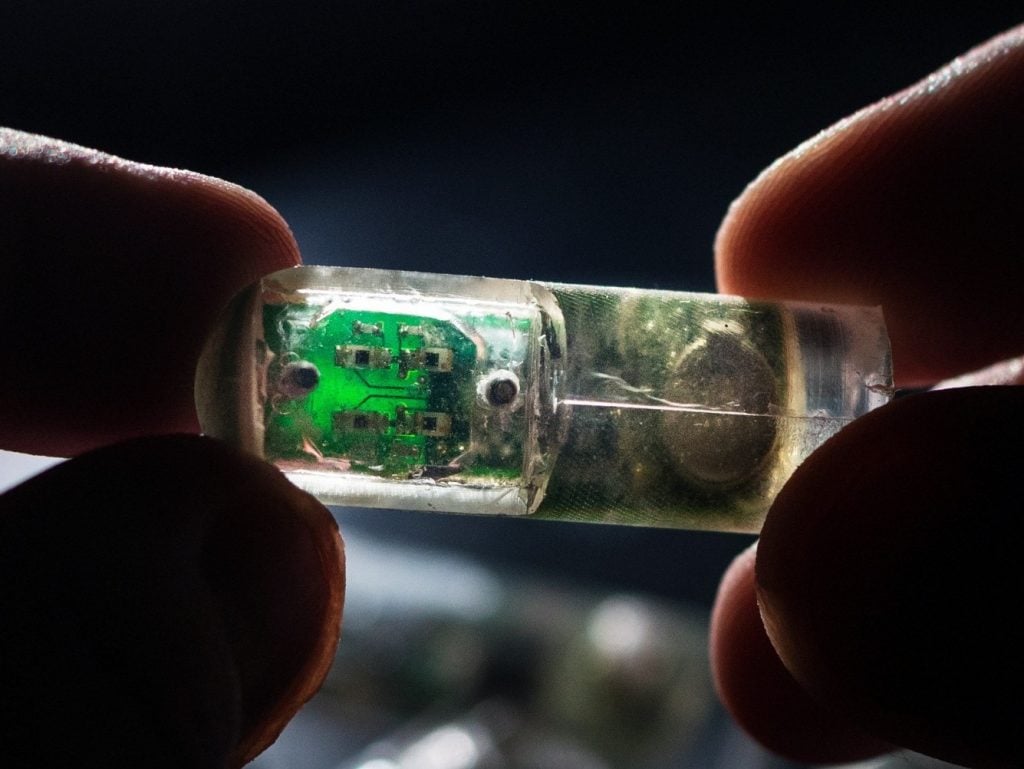
Image Courtesy: wired.com
Otsuka America Pharmaceutical has developed an antipsychotic aripiprazole pill (pill for treating mental disorders) embedded with an ingestible event-marker sensor. The sensor gets activated upon ingestion and transmits data to a wearable patch. The patch sends this data to a mobile app that allows the user to monitor medication ingestion data, activity level as well as mood of the patient.
The app data can also be communicated to healthcare professionals through a web portal.
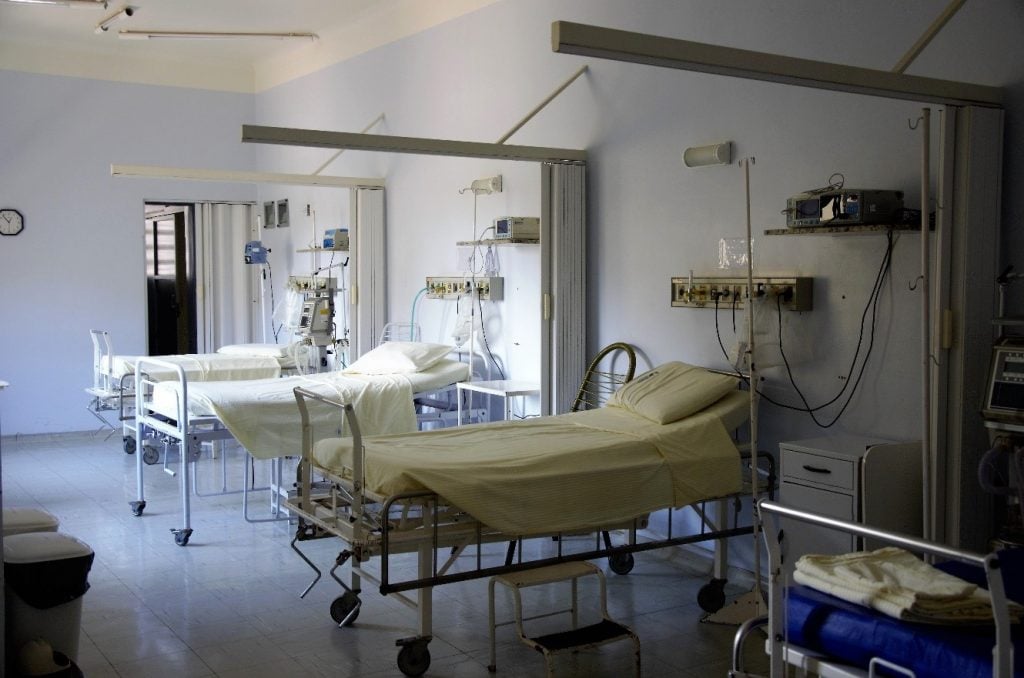
As ageing populations and chronic illnesses continue to soar, even the most developed nations across the planet face issues in managing their infrastructure. Most of the healthcare professionals remain overwhelmed with the workload be it tedious paperwork, unending queues or wide array of tests patients have to go through.
While IoT can never be a panacea, it can ease this workload to a considerable degree. Integration of IoT solutions can facilitate remote monitoring and automate a number of operations.
IoT can be used to create an automated, centralized database management system that can track all the documentation, optimize queues and track hospital staff and patients through their mobile devices. Real-time location systems can be deployed to remotely monitor all the hospital hardware.
Here are some IoT innovations that are facilitating operations management in hospitals:
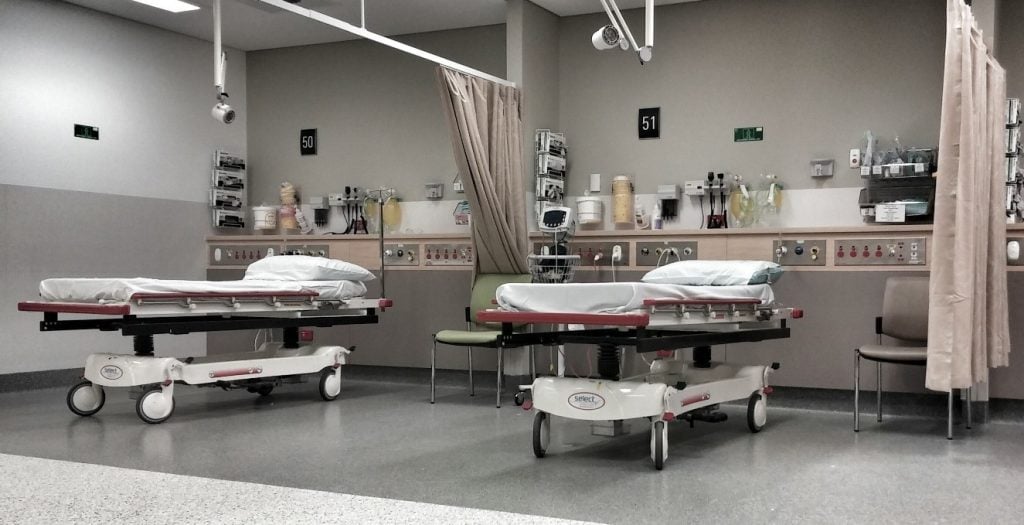
GE Healthcare has collaborated with Mt. Sinai Medical Center to create an IoT-based software AutoBed that aims to reduce the patient wait time for emergency rooms. The IoT solution tracks the availability of beds for incoming patients to ease the task of allocating beds to patients.
The software tracks a wide range of metrics to match the right patient with the right bed and ensure the bed gets allocated to the patient who needs it more urgently.
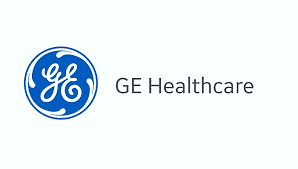
Stanley Healthcare in Massachusetts, USA has developed an IoT-based solution that tracks the real-time location of the patient using radio-frequency identification (RFID). This allows healthcare professionals to monitor the patients efficiently and offer personalized care.
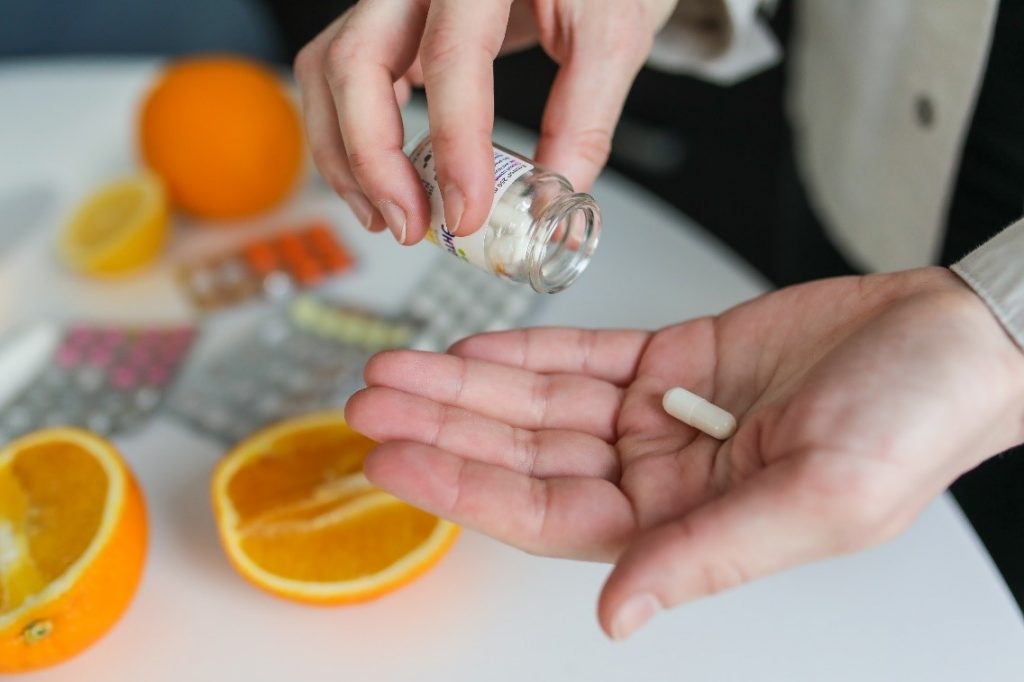
It has been observed that around 50% of the patients who are not directly monitored by their doctors or are being treated in a remote environment fail to adhere to the medication prescribed by their doctor, as a result of which their treatment does not yield the desired results.
This problem is so acute that it results in 125,000 premature deaths in the USA each year.
IoT-based solutions allow monitoring of such patients from far-off locations and send them reminders to ensure they comply with medical advice such as dosage and frequency of medication.
Here are some IoT innovations for medication management in patients:
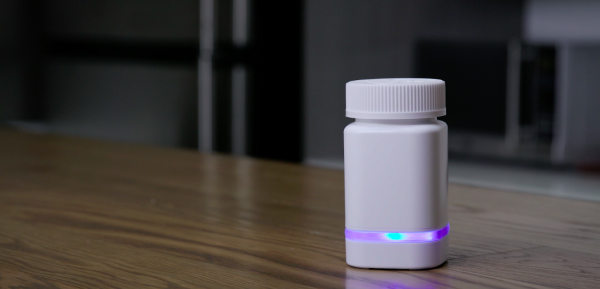
Image Courtesy: medcitynews.com
AdhereTech has created a smart-pill bottle that is given to patients along with their specialty medication. The bottle issues reminders for missed doses through text or phone and tracks medication adherence of the patient. Avella specialty pharmacy that uses these smart bottles for certain medications believes the IoT solution has improved medication adherence by 15% and fill rates by 9%.
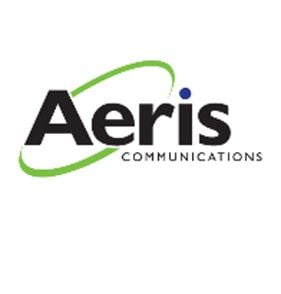
Aeris Communications has devised an IoT based plug-and-play platform for healthcare providers that lets them communicate with patients and ensure these patients adhere to their advice on medication dosage and frequency. The sensor-embedded platform allows patients to be monitored from a remote location and, in many cases, reduces the cost of treatment. This allows for a better assessment of the patient and facilitates transparent insurance reimbursements.
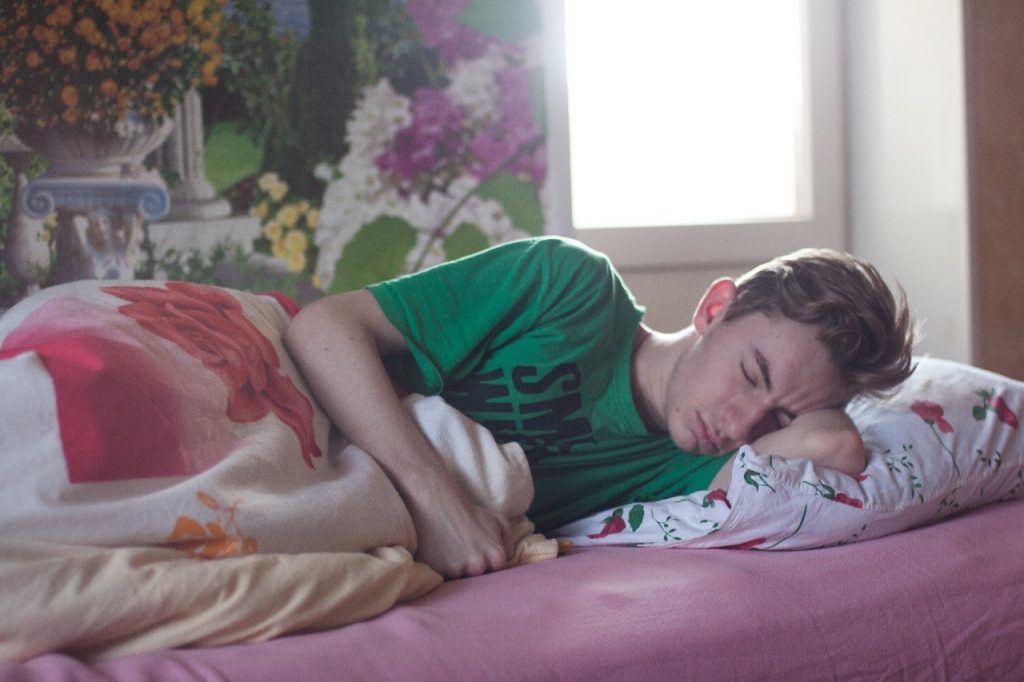
Sleep deprivation is a global health issue. Over 68% of Americans have reported having trouble sleeping at least once a week.
IoT-enabled sleep monitoring devices gather data pertaining to a user’s physiological stats while he is asleep; this data can be processed and analyzed to determine the best course of action for a sound sleep.
Here are some IoT innovations for better sleep management:
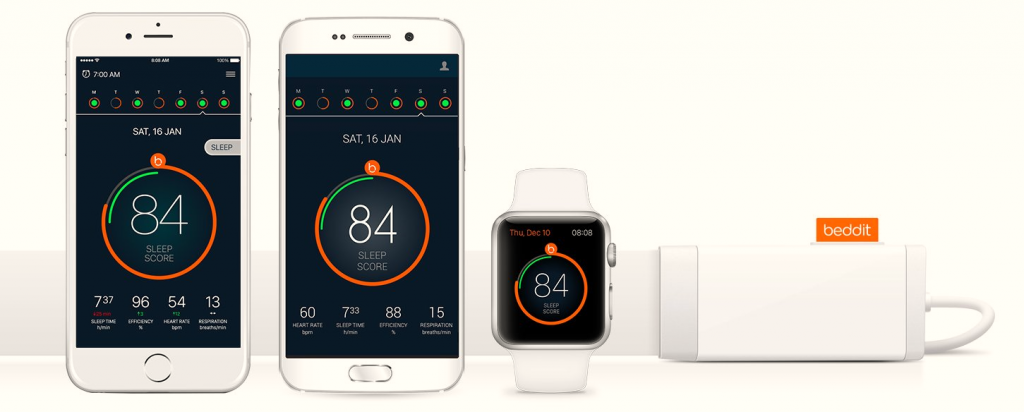
Image Courtesy: Amazon.in
Beddit Sleep Monitor from Apple Inc. is a Bluetooth-enabled device connected to an iOS app that tracks a user’s heart rate, breathing patterns, snoring and sleep environment while he is asleep. The device then analyses the gathered data to identify the best course of action for a better sleeping experience.
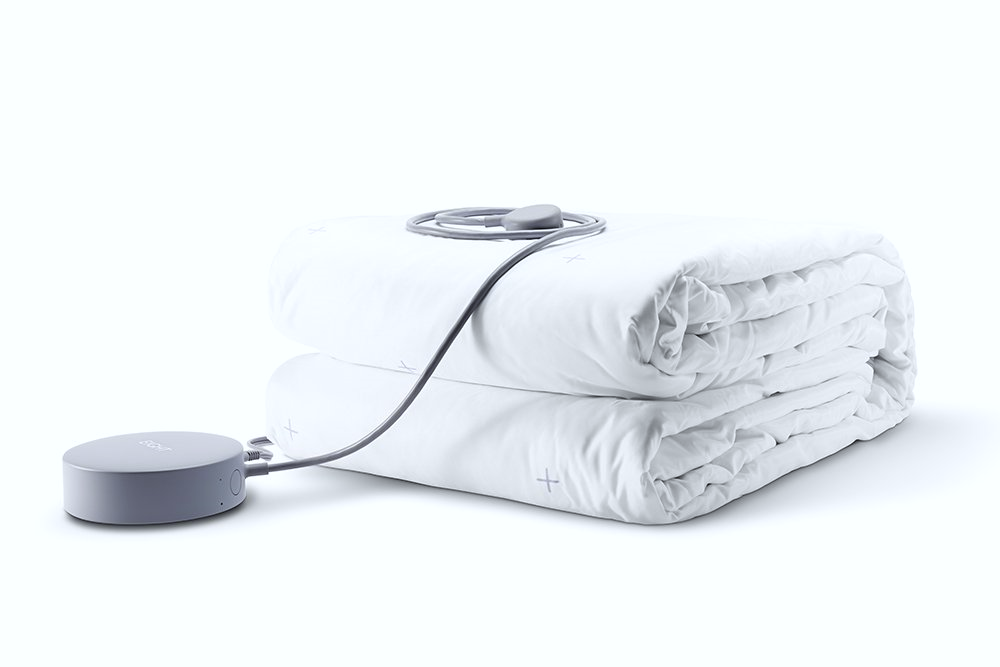
Image Courtesy: Amazon.in
Eight sleep monitor has a mattress with a sleep-sensing app that gathers user data and sends it to your mobile app so that your ideal sleep temperature can be determined. The app can be integrated with other smart devices such as lights and door locks.
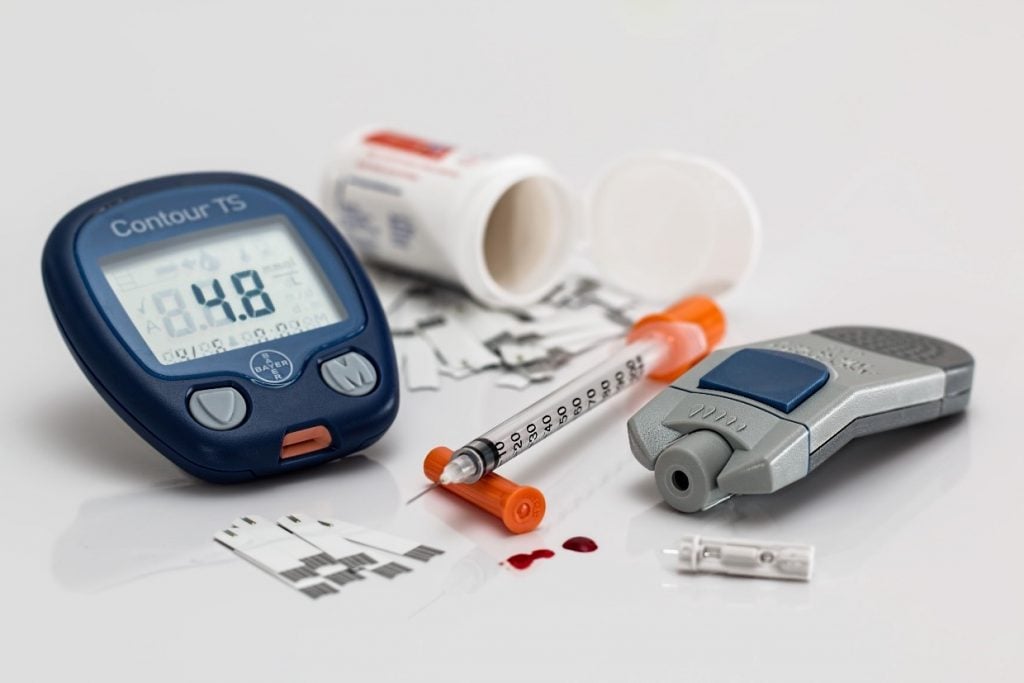
A rise in the incidence of chronic diseases has put immense stress on every country’s healthcare resources. Internet of Things has the ability to initiate efficient, information-driven patient care that costs less to the patient and offers more insights to the doctor, creating a win-win situation for both the stakeholders.
Wearables, ingestible sensors and network-enabled medical devices transmit user data directly to a patient’s electronic health record creating a repository that can be processed to reap valuable insights. Highly affordable, convenient-to-use IoT devices are being used to continuously monitor the heartbeat, blood pressure, sugar levels and other vital stats in chronically-ill patients.
Here are some IoT innovations being used to manage chronic illness:
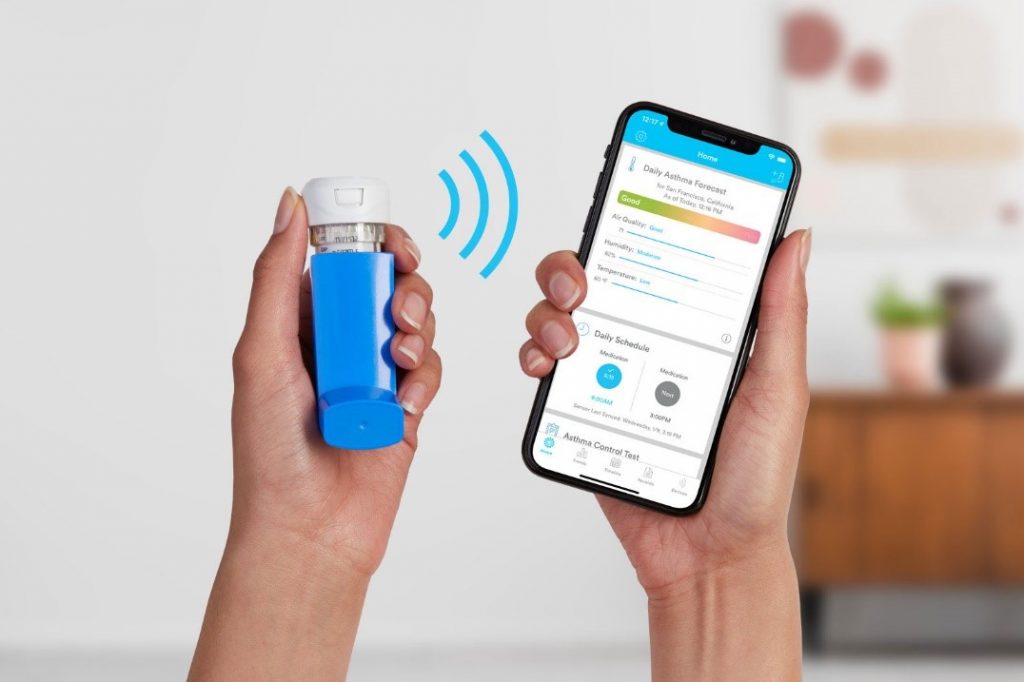
Respiratory disorders such as emphysema and chronic bronchitis affect millions of people each year. Propeller Health, a digital therapeutics company, has created a sensor that gets attached to an inhaler and tracks the frequency of rescue medication. The data from the sensor gets transmitted to a mobile app; by analyzing the app data, the user or his doctor can identify what might be causing their symptoms.
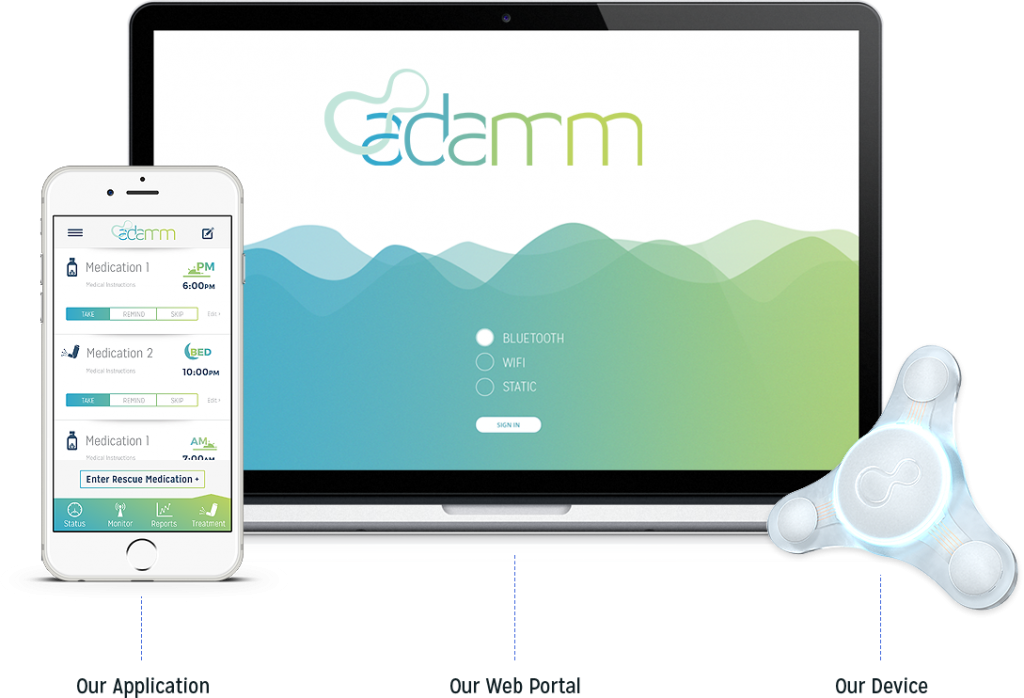
Image Courtesy: healthcareoriginals.com
Automated Device for Asthma Monitoring and Management or ADAMM is an IoT-enabled wearable that detects the symptoms of an asthma attack before its onset and duly notifies the wearer and his designated caretaker of the attack. This allows the patient to tackle the situation before it worsens.
The device also detects and tracks the use of an inhaler; it also allows patients to record their voice and track their feelings and behaviors. Operated in conjunction with a mobile app and a web portal, the device helps patients set reminders and monitor their treatment plan.
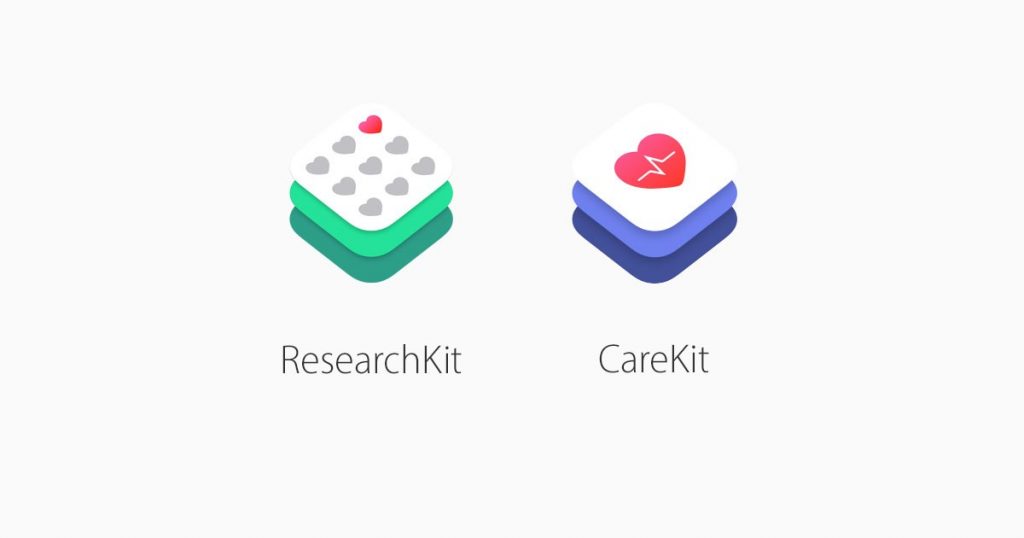
Image Courtesy: Apple.com
ResearchKit is an open-source software tool from Apple Inc. that doctors, scientists and medical researchers can use to gather data on people suffering from chronic illnesses such as Parkinson’s disease and diabetes.
ResearchKit has been leveraged to build health monitoring apps for iPhone that can collect data from an Apple Watch. As a result, patient data related to speech, gait, memory and motor impairment can be collected in real-time and analyzed -this can bring in significant breakthroughs in treatments of these diseases.
So you see IoT is opening avenues for path-breaking changes in the healthcare industry. IoT-enabled devices and sensors have allowed patients to track their vital health parameters in real-time, healthcare workers to offer personalized treatment and researchers to come up with novel ways of treating illnesses.
As technology continues to advance, we will witness more sophisticated use cases and applications of IoT paving way for IoT-centered healthcare.
Can you think of some other exciting IoT applications in healthcare space? If yes, please let us know in the comment section below. We will be glad to incorporate your ideas into our posts.
It is imperative for tech geeks to come up with apps that can help people getting the care they need without having to go to a doctor for visit. I read in a blog that stated about 40% of doctors think that a mobile app can reduce the number of visits to a clinic. Similarly, in the same study it stated that 93% of the physicians believe that health care mobile app can improve patient’s health. There is a need for mobile app developers to come out play their role during this pandemic.
Hey, Nice post! This is true that IoT has made our work easier. I didn’t know that Iot has provided these many benefits in the healthcare sector. This is great that the healthcare sector is benefitting from this. With IoT, the healthcare sector also needs healthcare marketing so people can know about the new technologies and can be aware of the healthcare facilities. Thanks for enlightening us about the applications of IoT in healthcare.
Thanks for the appreciation, Jason.
Really the good share! Interesting
Such a very useful article. Very interesting to read this article.I would like to thank you for the efforts you had made for writing this awesome article.